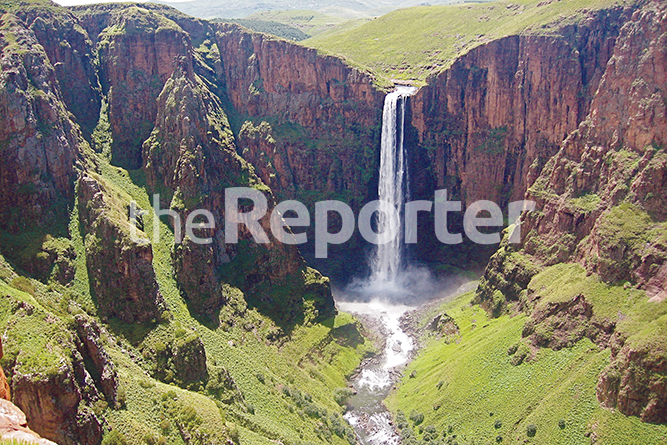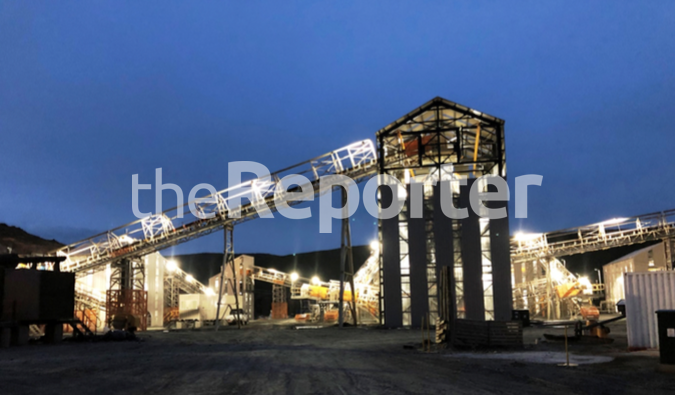By Kefiloe Kajane
Tourism is one of the sectors hit hardest by the Covid-19 pandemic, and with the festive season approaching fast, the industry is focusing its energy on rebuilding from the ruins left by the global pandemic.
And with September being the World Tourism Month, this year’s theme of ‘Tourism and Rural Development’, could not be more relevant.
Lesotho Tourism Development Corporation public relations manager ‘Manchafalo Motšoeneng, says although they do not have any scheduled event to mark World Tourism Day on September 27, they are planning to use social media to encourage Basotho to be involved in promoting tourism of the country.
Motšoeneng says said with the borders currently closed, they want to encourage Basotho to take the opportunity to explore their country and visit all the tourist attractions that are available.
“In line with the theme – ‘Tourism and Rural Development’ – it is important that we focus more on visiting rural places to promote tourism in the rural areas. We will also be celebrating via social media by promoting different tourism that people can be interested in,” Motṧoeneng said.
The secretary general of Tour Operators Association of Lesotho Kemang Leluma said it has been a difficult time for them in the tourism industry but they believe that things will get better as the industry is being opened up slowly.
He said although at the moment they have not sat down to discuss what they should do to rebuild the industry he believes that introducing domestic pricing might help them.
“If, for example, well decrease our pricing just a bit, this might actually attract many clients. Even people who would normally not travel because they believe it is expensive, might think again.
“We already have a gap as an industry so we need to work hard to rebuild ourselves and get back to where we were before all this happened. I think NACOSEC can help us by opening up some of the spots that were left out, especially things like national parks which are still not operational,” Leluma said.
Meanwhile, LTDC’s acting chief executive officer Sehlabake Ramafikeng recently went on record as saying: “As much as we wish the economy could be opened up so that tourism operators can get back to work, we cannot disregard the fact that the long-term costs of letting the virus roam free will be much higher than the pain of adhering to the government’s call to slow the spread of the virus, which points directly to travel restrictions and social distancing”.
He said on that note, they are left with no choice but to support the government by encouraging all players in the industry to align their operations with the World Health Organisation guideline on Covid-19 and to adhere to the government regulations on management of Covid-19.
The impact of the novel corona virus pandemic has been particularly catastrophic for Lesotho’s travel, hospitality and tourism industry. With the bulk of economic activity having come to a standstill, the tourism sector has shed many jobs as it was forced to shut down because it was not listed among essential service providers.
LTDC has previously stated that the country was getting into a high gear in a drive to attract more tourists in the country; the aim is to improve facilities, boost the contribution that the tourists make to the national economy and widen job creation platform within the tourism and associated business sectors.
Tourism contributes 2.5 percent of Lesotho’s gross domestic product. According to the Lesotho Tourism Development Corporation (LTDC) in its 2018 Tourism Arrivals & Accommodation Statistics Report released in May 2019, Lesotho welcomed 1 172 648 visitors during the year, exceeding its target of increasing international tourism arrivals from approximately 422 000 to 800 000 by 2019. An additional 35 482 visitors were recorded in 2018, reflecting an increase of 3.1 percent.
Most of the country’s visitors came from Africa and Europe, with South Africa and Germany the country’s top African and European markets, respectively. Germany and the Netherlands have been the fastest-growing markets for the past four years.
In addition to the rise in international arrivals, job creation and economic growth also received a boost in 2018. The total number of employees in the accommodation subsector was 2 717, comprising 52 percent females and 48 percent males.
The accommodation subsector accounts for the majority of employment in the tourism industry, followed by the food and beverages subsector.
Bed occupancy rates were highest in the Hotels subsector (30.4 percent), followed Guest Houses (23.3 percent), B&Bs (12.3 percent) and Lodges (11.9 percent). The highest occupancy rate amongst all types of accommodation was observed in Maseru, which also saw occupancy grow by 3.8 percent.
The tourism industry currently makes up around 10.4 percent of global GDP. The World Travel & Tourism Council (WTTC) in its 2019 report puts the total contribution of travel and tourism to Lesotho’s GDP at M5 941.4 million (US $446.8 million) in 2018. This represents 15.6 percent of the total economy and is 5.1 percent higher than in the previous year.
At the same time, the travel and tourism industry’s total contribution to employment, including jobs indirectly supported by tourism, was estimated at 105 800 jobs. This translates to 14.9 percent of all employment in 2018. The sector is expected to provide some 140 800 jobs by 2029.
According to the WTTC, spending by international visitors amounted to M336.3 million (US $25.3 million) in 2018, representing 2.1 percent of total exports for the year. At present, most spending is generated by business travel (93 percent), while leisure travel makes up just 7 percent.








